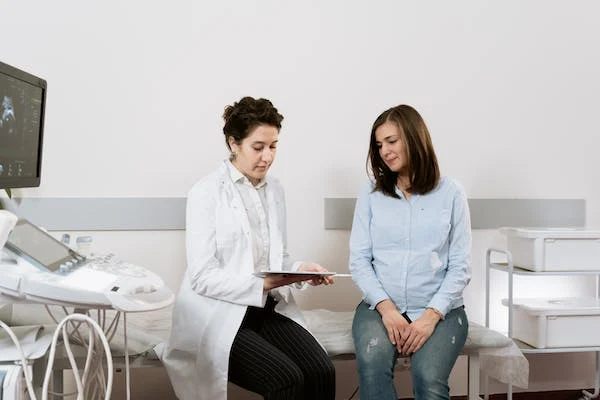Essential Tests Required Before Planning Pregnancy

Table of Contents
Introduction
Planning pregnancy involves more than just excitement and anticipation; it also requires careful consideration of your health and well-being. Undergoing specific medical tests before conception can provide valuable insights into your overall health, identify potential risks, and guide your pre-pregnancy preparations. In this informative guide, we’ll explore the essential tests to consider before planning your pregnancy to ensure the best possible start for you and your future baby.
The Importance of Tests before planning Pregnancy
Before you start trying to conceive, it’s recommended to undergo a series of tests to assess your health and address any potential concerns. These tests can provide essential information that will help you make informed decisions and take proactive steps to optimize your pregnancy journey and planning pregnancy.
1. Blood Tests
Complete Blood Count (CBC)
A CBC test evaluates your red and white blood cell counts, as well as your platelet count. It can identify conditions like anemia and infections that could impact your pregnancy.
Blood Type and Rh Factor
Knowing your blood type and Rh factor is crucial for planning pregnancy, as certain blood types can cause compatibility issues between you and your baby.
Rubella Immunity
Rubella, or German measles, can cause birth defects if contracted during pregnancy. A rubella immunity test ensures you’re protected against this virus.
Sexually Transmitted Infections (STIs)
STI screenings are essential to prevent complications during pregnancy. Tests for infections like syphilis, HIV, chlamydia, and gonorrhea are typically recommended if you are planning pregnancy.
Hepatitis B and C
These viruses can be transmitted to your baby during pregnancy or childbirth. Screening ensures early detection and appropriate management.
2. Genetic Testing
Carrier Screening
Genetic carrier screening assesses your risk of passing on inherited genetic conditions to your child. This is especially important if you or your partner have a family history of genetic disorders.
Cystic Fibrosis (CF) Testing
Cystic fibrosis (CF) is a hereditary condition impacting both the respiratory and digestive systems. Testing can identify carriers and determine the risk of passing on the condition.
Thalassemia Screening
Thalassemia, an inherited blood disorder, can disrupt hemoglobin production within the body. Screening helps assess the risk of passing on the disorder.
3. Hormone Tests
Thyroid Function
The pivotal role of thyroid hormones in fertility and pregnancy cannot be understated. Thyroid function tests ensure your thyroid is functioning optimally.
Ovulation Testing
Tracking your ovulation through hormonal tests helps determine the most fertile days for conception and is vital test before planning pregnancy.
4. Chronic Disease Management
Diabetes Screening
If you have a family history of diabetes or other risk factors, diabetes screening is essential. Proper management before pregnancy is crucial for a healthy pregnancy journey.
Hypertension Assessment
High blood pressure poses the potential for pregnancy-related complications. Ensuring your blood pressure is under control is vital.
5. Immunizations
Flu and Tdap Vaccines
Getting vaccinated against the flu and pertussis (Tdap) before pregnancy provides protection for both you and your baby.
Conclusion
Embarking on a pregnancy journey is an exciting time, and ensuring your health is in optimal condition is crucial for a smooth and successful experience. Pre-pregnancy testing provides valuable insights that can guide your decisions and help you take proactive steps to create a healthy environment for you and your future baby. Remember, consulting with healthcare professionals and following their guidance is key to a safe and joyful pregnancy journey.
Frequently Asked Questions (FAQs)
How far in advance should I undergo these tests?
It’s recommended to schedule these tests at least three months before planning pregnancy. This will help in improving the health and well being of the conceiving mother for an optimized pregnancy.
Do I need to undergo all these tests?
The tests you need may vary based on your medical history and risk factors. Consult your healthcare provider to determine which tests are essential for you before planning pregnancy.
Can these tests help prevent pregnancy complications?
Yes, by identifying potential risks and health conditions, these tests can help you take necessary precautions and receive proper medical care to prevent complications.
Should my partner also undergo tests?
Yes, many tests are important for both partners. Genetic testing, STI screenings, and overall health assessments are beneficial for both individuals.
Can I start prenatal vitamins before these tests?
Yes, it’s advisable to start taking prenatal vitamins containing folic acid before conception. However, don’t substitute these vitamins for proper testing and healthcare.
What if I discover health issues during these tests?
If any health issues are identified, your healthcare provider will work with you to develop a treatment plan and address any concerns before pregnancy.